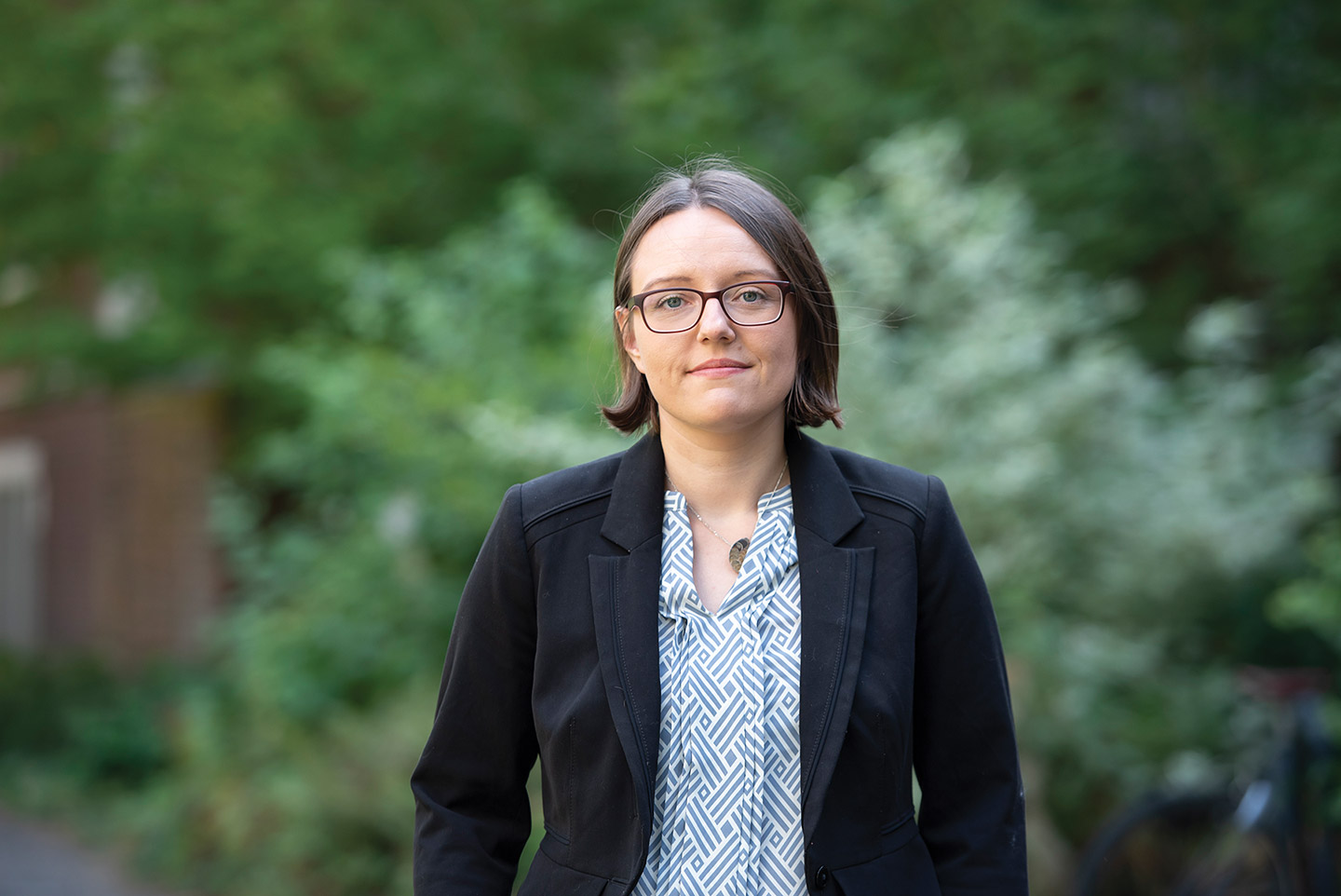National Science Foundation to fund Prof. Nicole James’s research on chemistry instruction
Chemistry education researcher and materials chemist Prof. Nicole James [chemistry] has won a grant from the National Science Foundation’s Building Capacity in STEM Education Research. She will receive $340,808 to research best practices in science education. The funding will support her project “BCSER: Identifying the Foundational Concepts and Skills of Materials Chemistry,” which will provide insights to help educators support STEM students in interdisciplinary endeavors.
James knows from experience that contemporary science curriculum often fails to meet the needs of students who hope to pursue interdisciplinary work, whether it takes the shape of materials chemistry, environmental chemistry, or another field of study. Introductory courses cannot cover all of these subdisciplines, which means educators often face the choice between prioritizing either breadth or depth when planning first-and second-year chemistry courses.
“Sometimes if we teach more, they learn less,” James says. This dynamic, she says, is partly due to historic approaches to science curriculum that date from the 1950s. Even if schools want to upend these curricular norms, change comes with its own complications, including difficulties for students seeking to transfer or pursue exchange programs.
So if they want to recruit students to pursue and thrive in interdisciplinary fields, what’s a science educator to do? “If I have one week to present a case study, which is it going to be?” James says. That is: Which scientific skills and concepts are most widely used in interdisciplinary chemistry work? How can those topics be taught in a way that helps young scientists take what they know and apply it in a context they’ve never seen before?
The grant-funded project will explore these questions through interviewing chemistry postdocs about the concepts and skills they use in their work. James will also devise, execute, and analyze a national survey. Throughout all of this, Reed students will have a role to play: they will contribute to the theoretical framing of the study, participate in interview collection and analysis and more—perhaps with an end result that benefits future students like them.
Tags: Academics, Awards & Achievements, Professors, Research
